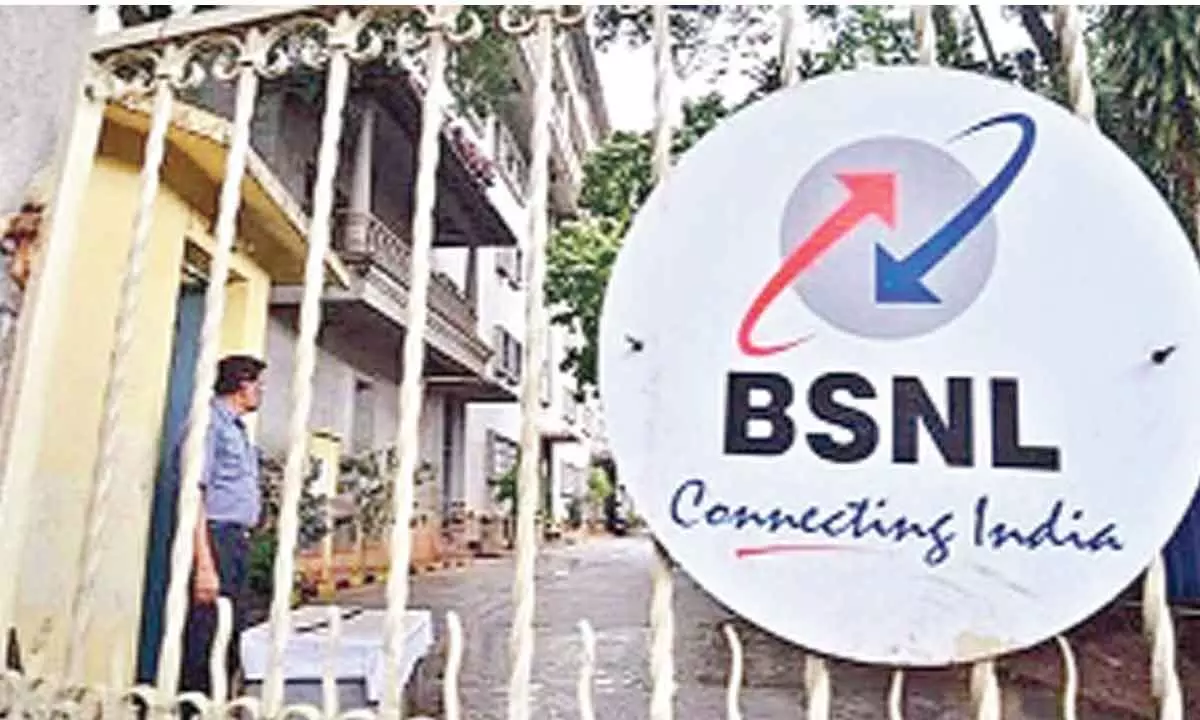BSNL revival package: Is it a waste of money?
At a time when pvt players would soon be using 5G spectrum, one has to expand the boundaries of optimism to believe that a sick PSE can compete successfully in such a tough market
image for illustrative purpose

The Government's decision to revive Bharat Sanchar Nigam Limited (BSNL) with a package worth Rs 1.64 lakh crore is, to put it mildly, baffling.
In the press release which gave details about the package, the rationale was given, "Telecom is a strategic sector. Presence of BSNL in telecom market acts as a market balancer. BSNL plays a crucial role in expansion of telecom services in rural areas, development of indigenous technology and disaster relief."
If 'market balancer' connotes a player that can protect the interests of consumers, that doesn't inspire much confidence. For it is a well-known fact that mobile tariffs, which were exorbitant at the time when cell phone services began, came down once competition intensified between private players. The entry of Reliance Jio six years ago further made telecom and data cheaper, thus making mobile and internet services affordable for the poorer sections of society.
As for BSNL being important for telecom services in rural areas, development of indigenous technology, disaster relief, etc., private players reach almost all parts of the country - and they are still penetrating the remaining, even inaccessible, parts.
Besides, there is the fundamental issue: should there be a public sector enterprise (PSE) in every sector to protect consumers? There are a zillion goods and services we use - furniture, computers, air-conditioners, fans, soaps, toothpastes, books, stationery, television sets, services of plumbers, electricians, etc. The government neither can nor should enter every walk of economic life on the pretext of shielding consumers from the supposed depredations of private enterprise.
The BSNL package is typical: infusion of fresh capital for capital expenditure and upgrading its services, de-stressing of its balance sheet, debt restructuring, financial support for AGR dues, increase in authorized capital from Rs 40,000 crore to Rs 150,000 crore, et al. The package also includes viability gap funding for rural wire-line operations and augmentation of its fiber network by merger of Bharat Broadband Nigam Limited (BBNL) in it. "To improve existing services and provide 4G services, BSNL will be allotted spectrum in 900/1800 MHz band administratively at the cost of Rs 44,993 crore through equity infusion. With this spectrum, BSNL will be able to compete in the market and provide high-speed data using their vast network including in rural areas," the press release said.
At a time when private players are buying, and would soon be using, 5G spectrum, one has to expand the boundaries of optimism to believe that a sick PSE can compete successfully in such a tough market. It needs to be mentioned here that BSNL received a revival package amounting to Rs 70,000 crore in 2019, but that has clearly failed to make it healthy. Telecom Minister Ashwini Vaishnaw himself believes that only in 2026-27 BSNL is expected to earn a net profit.
Further, revival packages have never been successful - neither in the recent past, nor earlier. Air India gobbled up tens of thousands of crores of taxpayer money - and remained sick till the end of its PSE existence. It had to be sold out.
A government document, a disinvestment manual of 2003, listed 21 PSEs whose revival was studied. The verdict: "Despite huge investments shown above, the government has not even been able to achieve turnaround in any of the sick companies shown in the Table."
Against this backdrop, the revival package for BSNL doesn't seem reasonable. In fact, it militates against the principle Prime Minister Narendra Modi has stated more than once: the business of government is not business.
BSNL revival is almost impossible; the sooner the government realizes this, the better for the taxpayer, who ultimately has to bear the burden of revival packages.

